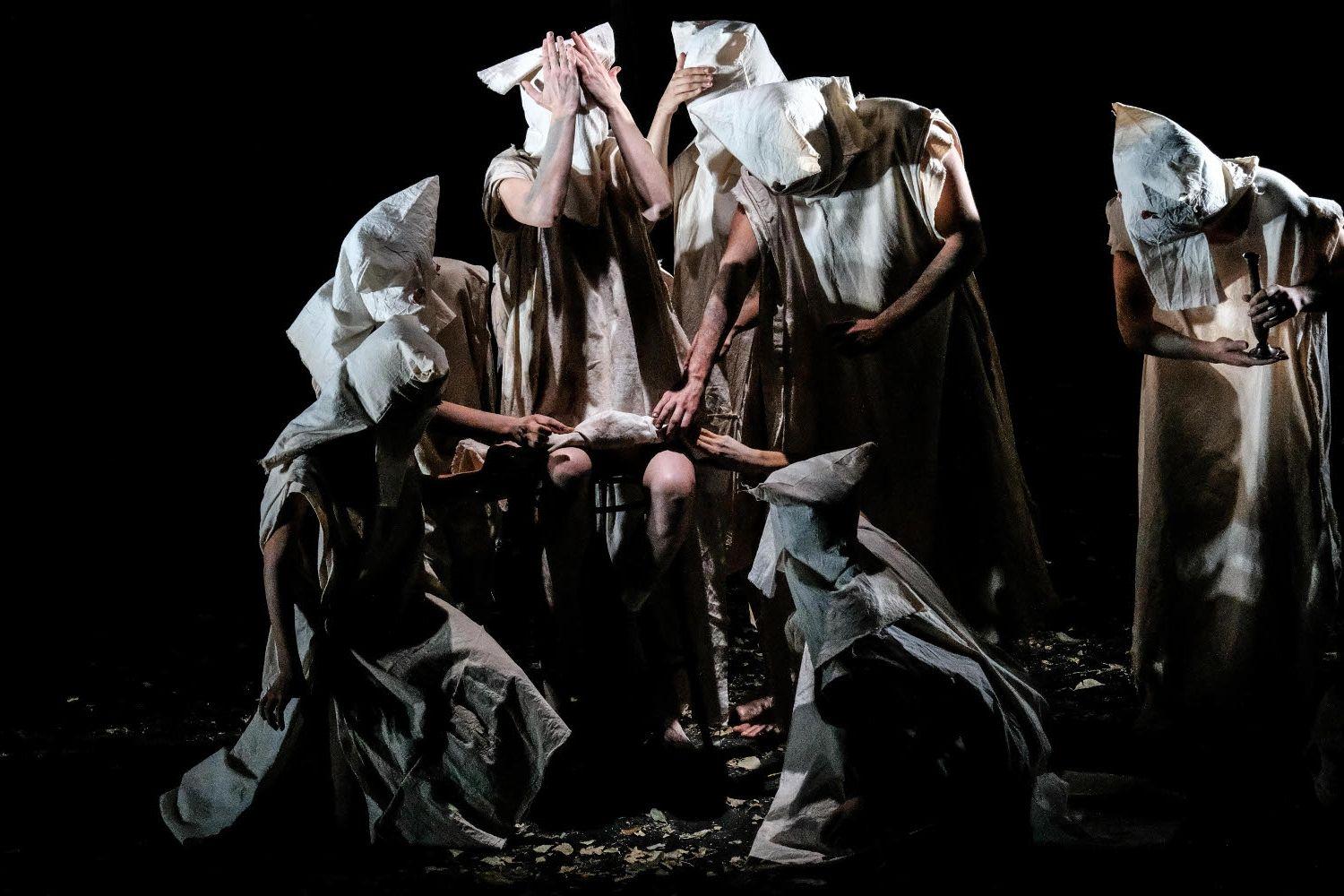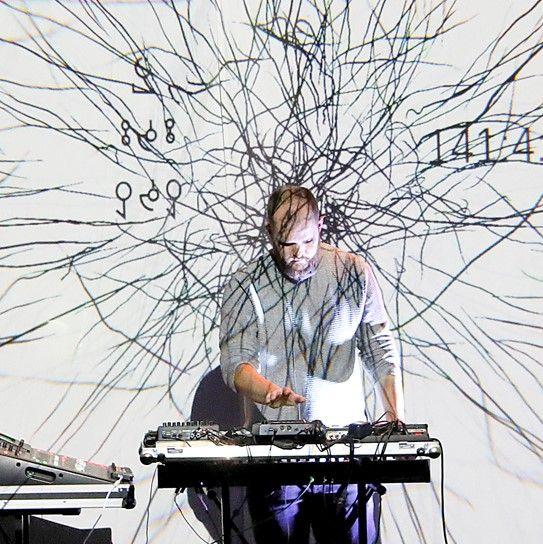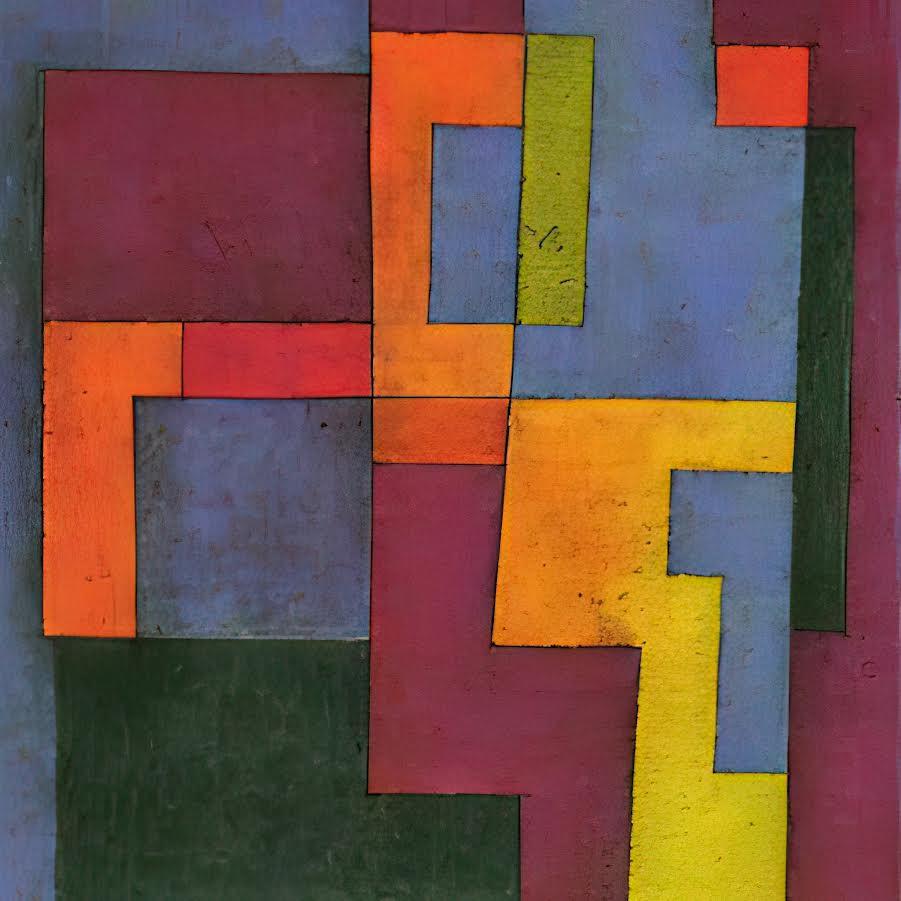Humane Methods
completedFellowship

SummaryHumane Methods (2019-present) is an ongoing project by Fronte Vacuo (Marco Donnarumma, Margherita Pevere, Andrea Familari) that reflects on the new forms of violence emerging in algorithmic societies. The technological research for ℧R and ΣXHALE have been conducted at the Academy for Theater and Digitality and this page describes our research questions, workflow and findings in relation to these projects. Please note that this page does not discuss the theatre pieces we created in their entirety, but focuses only on the technological research that underpins those pieces. For further information about the aesthetic, conceptual and dramaturgical research behind these works please visit our website.
Humane Methods (2019-present) is a project consisting of happenings and stage productions where dancetheatre, bio-art, interactive music, adaptive lighting, and AI technology integrate into living ecosystems. Each work in the series acts as a branch of a rhizome: each dives into different facets of the same theme and world. The works created so far – ΔNFANG (2019), ℧R (2020) and the forthcoming ΣXHALE (2021-) – combine in different ways performing arts with technology and the human with the non-human to reveal algorithmic violence through sensory, physical and ahuman strategies. It is an aesthetic research into how a synthesis of symbols, movement, music and AI can enable posthuman forms of empathy.
℧R

℧R is a solo performance for a body, AI algorithms, lights and the vibrational force of sound.
Embodied in Donnarumma’s musical instrument XTH Sense, an interactive, machine learning algorithm transforms the inner sound of muscles, blood, and bones into a real-time choreography of movement, sounds and light. Drawing on Donnarumma’s more recent movement research, the piece combines multi-sensorial stimulation with human-computer interaction and somatic practices to test the seeming impossibilities of bodily articulation and repetition.
℧R is a walk in the dark. A thin body walks while a dim light shines. A path covered in soil is between them. Gazeless, the figure walks and prays, walks and prays, walks and, entranced, pries into the darkness. Its red cloth sanctifies it. Its missing face alienates it. The walk is a loop, a prayer, an aggression, an annihilation and a transformation. An AI computer vision system watches over the body, attempting to distinguish the body from the ‘noise’ surrounding it. The AI wants to represents what it sees, but the system works against itself in a paradoxical loop; the more the algorithm learns to see, the brighter the light becomes. In the eyes of the algorithm, the body is eaten by the storm of light.
ΣXHALE

The latest chapter in the Humane Methods series is ΣXHALE (2021-). A poetic reflection on ethics in algorithmic societies, ΣXHALE is a procedural and participatory piece lasting several days.
It develops in loops, performed simultaneously by 6 performers* and an AI computer-vision system. As it watches the performers repeat a proto-prayer ritual, the AI learns their movements in the space and then begins searching for anomalies, something that deviates from what it expects to see. The learning process is accurately transformed in real time in music and lighting, influencing thus the events in the form of audiovisual stimuli. With each repetition, each variation and each anomaly, the loops mutate into stories of violence and empathy and the audience is asked to choose how they want to participate in these stories. The interaction between audience, performers and AI gives life to an endless sequence of micro-narratives.




